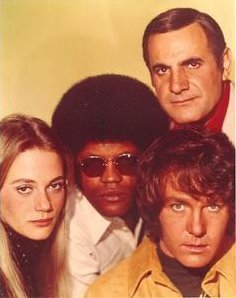Yesterday I wrote that the word “unimaginable” makes no sense in terms of the thwarted terror attacks. After 9/11, they were not only imaginable, but eminently so.
But it turns out it’s even worse than that. Not only were they imaginable, there was even something vaguely familiar about them. It didn’t take long to realize that the plot resembled what is known as Oplan Bojinka, an aborted 1994-95 al Qaeda plan to blow up a group of airliners in flight.
On further study, it turns out that the details of the most recent plot were not just vaguely similar to Bojinka. The resemblance was far greater than that: take a look.
Oplan Bojinka was conceived by our old friends Ramzi Yousef and Khalid Shaikh Mohammed, both now in custody and the designers, respectively, of WTC attacks #1 and #2. The details? Blow up eleven airliners using nitroglycerine packed into contact lens solution bottles. It is estimated that, had the plan gone into operation, about 4,000 people would have died and air travel would have been disrupted for weeks.
The similarities to the current plot are profound, but the apparent differences are interesting, as well–the main one being that the Bojinka operation was to be carried out by the higher-up planners themselves rather than by underlings, and that they would not be committing suicide–although there’s evidence that at least one part of the plot involved suicide: a terrorist pilot would commander a plane and crash it into the headquarters of the CIA (sound familiar?)
Bojinka was meticulously planned: the bombers would plant the explosives in life vests and then disembark from the planes at scheduled stops, before nearly simultaneous detonation over the South China Sea and the Pacific Ocean. The timers for the bombs were in Casio watches.
To give you an idea of Bojinka’s scope, here are the airports that were to be affected:
* Kai Tak International Airport, Hong Kong
* New Tokyo International Airport (Now Narita International Airport), Narita, Chiba Prefecture, Japan, near Tokyo
* Ninoy Aquino International Airport, Pasay City/Paraé±aque City, National Capital Region, Philippines, near Manila
* Chiang Kai Shek International Airport, Taoyuan, Taiwan, Republic of China near Taipei
* Singapore Changi Airport, Singapore
* Gimpo Airport, Gimpo City, South Korea (Now a part of Seoul)
* Bangkok International Airport, Bangkok, Thailand
* Honolulu International Airport, Honolulu, Hawaii
* JFK, New York, New York
* LAX, Los Angeles, California
* Portland International Airport, Portland, Oregon
* San Francisco International Airport, San Francisco, California
The plot was foiled through what might be called a “work accident.” The bombers’ experimentations started a fire in their apartment and they fled while authorities were on the way, leaving behind a precious laptop with all the information about the plot. A confederate who was later sent to retrieve it was caught, and his cell phone led to the capture of some of the others.
The entire story reads like a movie. But if it does, it seems to be a movie that wasn’t viewed very often or with much attention. Because the question remains: how, with all of this history, could the present-day attacks have been called “unimaginable” by the British police? And, semantics and hyperbole aside, why weren’t bans on carry-on liquids in airplanes instituted long ago?
Oh, I know; it’s a risk-benefit ratio. Passengers don’t like being inconvenienced; I don’t like it myself.
One reason all of this may have been ignored is that the way the perpetrators of Oplan Bojinka were caught made them seem like a pack of bumblers. The same was true of the first WTC bombings in 1993. The result? No one took them seriously.
But after 9/11, Bojinka needed careful attention and thoughtful revisiting. All of the previous modi operandi used by al Qaeda should have been studied in great detail, and policies instituted to circumvent them in the future.
It’s a well known fact that Al Qaeda has a marked propensity for recycling its ideas, and it appears that the present-day plot was tantamount to deja vu all over again. It wouldn’t have taken a particle of imagination for authorities to have known that. All it would have taken was the study of history–which, like al Qaeda, has a tendency to repeat itself.

